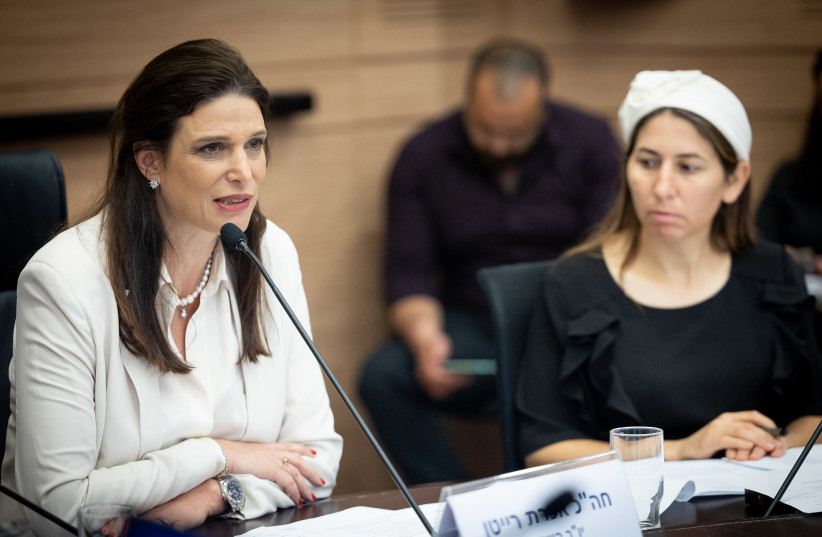The Knesset Labor, Welfare and Health Committee on Monday approved abortion reforms in a preliminary reading after the US Supreme Court overturned Roe v. Wade.
The amendment would allow women to apply online to get an abortion and to receive a pharmacological abortion in more accessible places.
“I saw how the [Pregnancy Termination Committee] asked questions,” said Health Minister Nitzan Horowitz, who proposed the amendment.
“There were some really intimate and irrelevant questions,” he said. “These were written in a chauvinistic and outdated manner that suggests a woman’s rights are not relevant.”
Currently, to get an abortion in Israel, a pregnant woman must meet at least one of the following criteria:
• Unmarried
• Younger than 18 (the legal age of marriage)
• Older than 40
• The pregnancy was conceived under illegal circumstances (rape, statutory rape, incest, etc.)
• The fetus has a birth defect
• The pregnancy poses a risk to the physical or mental health of the mother.

If a pregnant woman meets the criteria, the abortion must then be approved by a Pregnancy Termination Committee. These laws were enacted in 1978 and have not been amended since.
The reform would allow for a pharmacological abortion in public clinics in the community and would improve the procedure of the Pregnancy Termination Committee. It would also allow for the forms for the abortion to be submitted online.
The changes would simplify the process and would “improve the status of women’s rights to their own bodies,” Horowitz said.
“It has been 40 years that the Health Ministry has operated according to medieval abortion laws,” he said. “This reform would make the law more suitable to modern times. It’s time for us to move forward.”
"This reform would make the law more suitable for modern times. It's time for us to move forward."
Health Minister Nitzan Horowitz
The abortion debate is a personal one
Committee chairwoman Efrat Rayten said an abortion had saved her life.
“Abortions saved my life, personally, my own life and the lives of my family,” she said. “I’m afraid that my basic right over my body will be taken away. It made me anxious.”
In response, United Torah Judaism chairman Moshe Gafni said: “What is happening in the US is none of our business. We are not talking about ugmat nefesh [aggravation]. This amendment says women can go and get an abortion, and there will be no more fetus. And the claim is that it is the right of the woman. This is the discussion, and we should not have this discussion while the Knesset is about to disperse.”
He said he was “not denying that this should be discussed... but the health minister is taking advantage of the fact that the Knesset is about to disperse to put this forward.”
“No woman is going to get an abortion of her own accord without a reason,” Meretz MK Michal Rozin said. “The experience is traumatic. The law does not offer the help and support that it is supposed to.”
Shas MK Moshe Arbel said his party was “worried that under this law, an abortion that does not [abide by] Halacha will be permitted.”
Rozin said: “We are lucky to be Jewish. Judaism recognizes women. It is a cause for pride.”
The amendment, although discussed for weeks, was pushed forward amid the US Supreme Court’s decision to overturn Roe v. Wade, a ruling that recognized women’s constitutional right to abortion.
The justices, who passed the decision in a 6-3 vote, ruled that the Roe v. Wade decision was wrongly decided because the US Constitution makes no specific mention of abortion rights. The court’s decision and the lead-up to it have shaken the US over the past few weeks.
